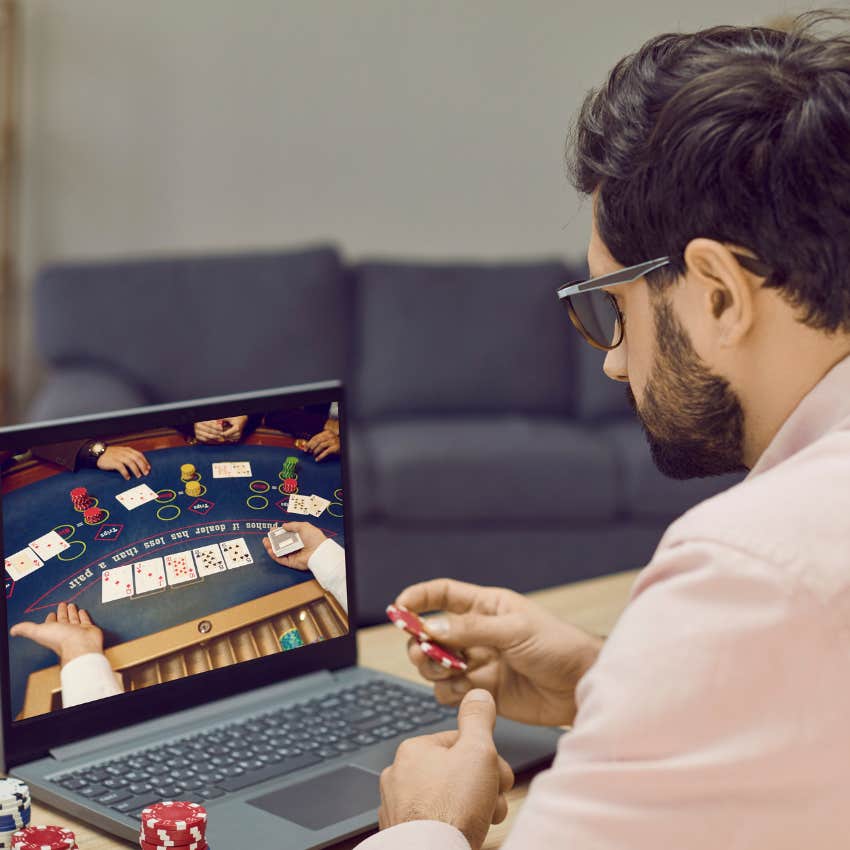5 Feel-Good Habits That Can Quietly Turn Into Compulsions
Too much of these can be a bad idea.
 Jerin Andrews | Unsplash
Jerin Andrews | Unsplash Most activities or behaviors are perfectly fine in our day-to-day lives as long as they are done in moderation. The more important question is, what habitually excessive behaviors might damage our relationships, finances, careers, etc?
The answers to that question will help shape our plan of action to better control our actions in the name of moderation. Moderation is defined as the avoidance of excess or extremes, especially in one's behavior. Other definitions include:
- Self-restraint
- Self-control
- Self-discipline
- Moderateness
- Temperateness
- Temperance
- Abstemiousness
- Nonindulgence
- Leniency
- Fairness
How do we interpret what behaviors should be more controlled? We determine as quickly as we can whether a behavior is compulsive. Compulsive behavior is defined as performing an action persistently and repetitively. A 2014 study found that these habits often start as a way to cope with anxiety or intrusive thoughts, but over time, they become repetitive and uncontrollable.
Here are 5 feel-good habits that can quietly turn into compulsions:
1. Alcohol consumption
Alcoholism is a chronic disease characterized by compulsive and uncontrollable emotional and physical dependence on alcohol. The alcoholic drinks to get a buzz or drunk, and continues to drink in excess long after the buzz has arrived.
It's certainly fine to enjoy a few cocktails from time to time. It doesn't become a problem until it begins to interfere with important relationships, your career, or your finances.
There are many functioning alcoholics who are very good at hiding their addiction. They may even convince themselves that if they are only drinking on the weekends, on vacation, or when they don't have to work the next day, they don't have a problem. Some believe that if they are not hurting anyone, it shouldn't be anyone's business. While this may be true, are we certain it is not affecting those we hold close to our hearts?
How much fun is it to watch someone who is stumbling around, slurring their words, getting louder by the minute, and repeating themselves over and over? If having a drink is the first thing one thinks about the moment they get off work or arrive home, one may need to think about how much this issue controls their decisions or choices. Is it a bad habit or an addiction?
2. Shopping
 maxbelchenko / Shutterstock
maxbelchenko / Shutterstock
This becomes an issue when someone shops for items even when one doesn't really need anything. Just because one can afford to own two hundred purses, doesn't mean that one should. In many cases, those who appear to enjoy excessive shopping are trying to fulfill a void that is not being met. They may believe that having 50 purses means they are important or that they have some version of the status quo.
Who are you trying to impress, and why is it so important? Is this just an attempt to satisfy a need to feel important? Or perhaps, it makes one feel like they matter.
When a purchase is made, dopamine, a neurotransmitter associated with pleasure and reward, is released, resulting in a temporary surge of joy. A 2022 study concluded that this reinforces the behavior, making the person want to repeat it to experience that feeling again, much like how addiction works.
3. Eating
Eating to fulfill a void. It tastes good and I just want more. Or undereating because one thinks they are fat (anorexia or bulimia). What needs or feelings are not being met or addressed? Maybe one is a nervous eater. Maybe they grew up in a home where everyone overate. Maybe these habits became an issue because one is bored or lonely or sad.
Yes, it starts somewhere, but that doesn't mean it should continue on from generation to generation. Start by walking — even if it's just a short walk. Walking helps us change our focus. It allows us to release emotions. When we focus on all of the beauty that surrounds us, we realize that there can be more to life than just food.
4. Gambling
 Studio Romantic / Shutterstock
Studio Romantic / Shutterstock
This is playing games of chance for money in the hope of reaching a desired financial result. The odds of winning put us at risk of losing the earnings needed to meet our financial obligations.
How many people have broken family relationships because they lost everything to gambling? We can't rob Peter to pay Paul. As with other addictions, tolerance develops with repeated gambling, requiring increased bets to achieve the same level of satisfaction. Research revealed that when individuals attempt to reduce or stop gambling, they may experience withdrawal symptoms, such as anxiety, irritability, and agitation.
5. Hoarding
Hoarding disorder is defined as a persistent difficulty discarding or parting with objects or possessions. This often happens because one may have grown up poor or believe that irrelevant items hold some type of value.
Taking pride in a moderate approach
We have to stay focused on what life will look like once we get to the other side of these issues. How satisfying will it feel if we accept that we can be proud of our accomplishments?
Think about the value of self-worth. Consider how much more enjoyable life can be without having these obstacles standing in the way.
Where is our focus on matters of importance? When did we lose focus on who we are and who we want to be? At what point do we decide that our obsessions have too much control over us? Why are we so willing to give any of these behaviors so much power?
Are we willing to accept that we may lose important relationships if we aren't willing to work on overcoming an addiction or behavior? Is maintaining our behavior choices without change worth the risks? Ask yourself, "Who or what is important to you and why?"
I often ask my clients, when they are 70 years old and looking back at their lives, will they have any regrets? Are you willing to answer that question honestly?
Poor habits are hard to break. Is it time to stop making excuses? Is it time to be accountable? Remember, there are many people who have overcome these obstacles before you. There are people who are willing to support you and stand by your side.
Don't be afraid to ask for help. This doesn't mean you are weak. It means that you are human and no one is perfect. We have to recognize that we all have options. We have the ability to change. Only we get to choose our priorities.
Drug and alcohol addiction is incredibly common. The Substance Abuse and Mental Health Services Administration (SAMHSA) reports that approximately 20.3 million people above the age of 12 have suffered from a substance use disorder in the past year. According to SAMHSA’s 2018 National Survey on Drug Use and Health, close to 2 million people of the same age bracket have suffered from opioid use disorders, and 14.8 million from alcohol use disorders.
Misusing alcohol and other drugs can be detrimental to your immediate and long-term physical, emotional, and mental health. Alcohol and drug addiction is something to take seriously, although often overlooked. Anyone of any race, age, sexual orientation, religion, or gender can suffer from alcohol and drug addiction. Recovering from an addiction is more than just abstaining from drugs or alcohol. It’s about investigating the internal framework of your brain, rewiring your thought patterns, and actively changing behaviors over a long period of time.
If you or someone you know is suffering from addiction, there are resources to get help. The process of recovery is not linear, but the first step to getting better is asking for help. For more information, referrals to local treatment facilities and support groups, and relevant links, visit SAMHSA’s website. If you’d like to join a recovery support group, you can locate the nearest Alcoholics Anonymous or Narcotics Anonymous meetings near you. Or you can call SAMHSA’s National Helpline at 1-800-799-7233, which is a free 24/7 confidential information service in both English and Spanish. For TTY, or if you’re unable to speak safely, call 1-800-487-4889.
Kathy Thielen is an energy healer and life coach who focuses on happiness, self-care, psychic healing, and relationships.

